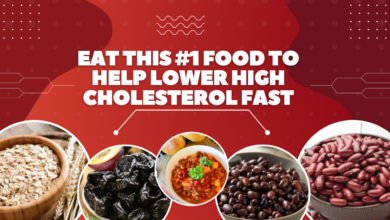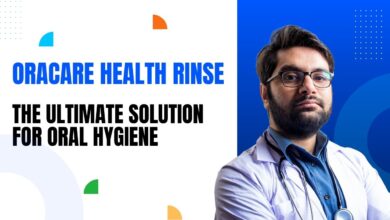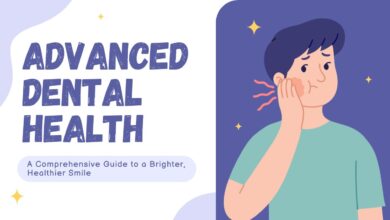Diet After Prostate Surgery: A Comprehensive Guide

Discover the best foods to eat after prostate surgery. This guide offers practical diet tips for faster recovery and better health.
Introduction
Recovering from prostate surgery is no small feat, and your diet plays a crucial role in ensuring a smooth healing process. The foods you consume after surgery can help speed up recovery, reduce complications, and improve your overall health. But what exactly should you be eating, and what foods should you avoid? In this guide, we’ll explore the best diet strategies to follow after prostate surgery, helping you get back on your feet faster and feeling better than ever.
Understanding Prostate Surgery
What is Prostate Surgery?
Prostate surgery, often referred to as a prostatectomy, involves the removal of the prostate gland, usually to treat prostate cancer. Depending on the severity of the condition, the surgery can be partial or complete.
Common Reasons for Prostate Surgery
Most prostate surgeries are performed to treat prostate cancer, but they can also be done to address other conditions like benign prostatic hyperplasia (BPH), which is the enlargement of the prostate gland, or to resolve issues with urination.

The Importance of Post-Surgery Diet
Why Diet is Crucial After Prostate Surgery
Your body needs time and the right resources to heal after surgery. A healthy, well-balanced diet is key to supporting the body’s recovery process. Consuming the right nutrients not only helps with healing but also boosts your immune system and reduces the risk of complications such as infections or digestive issues.
Role of Diet in Recovery and Long-Term Health
The right post-surgery diet doesn’t just impact your immediate recovery; it can also influence your long-term health. A diet rich in whole, unprocessed foods helps maintain a healthy weight, reduces the risk of cancer recurrence, and promotes overall well-being.
Nutrition and Healing Process
How Nutrition Aids in Healing
After surgery, your body needs extra energy and nutrients to repair tissues and regain strength. Nutrient-dense foods, especially those high in vitamins and minerals, play an essential role in this process by providing the necessary building blocks for recovery.
Nutrients to Focus on Post-Surgery
Certain nutrients are particularly beneficial for post-surgery healing, including:
- Protein for tissue repair
- Fiber for maintaining healthy digestion
- Vitamins A, C, and E for their antioxidant properties
- Zinc for immune support
Foods to Include in Your Diet
High-Fiber Foods
Fiber is vital after prostate surgery, as it helps to prevent constipation—a common issue post-surgery due to decreased mobility and medications. Foods rich in fiber include:
- Whole grains (brown rice, oats)
- Legumes (beans, lentils)
- Fruits and vegetables (berries, leafy greens)
Lean Protein Sources
Protein is essential for rebuilding tissues after surgery. Opt for lean protein sources like:
- Skinless chicken or turkey
- Fish (especially fatty fish like salmon for its omega-3 content)
- Plant-based proteins (tofu, tempeh, legumes)
Healthy Fats
Healthy fats, particularly omega-3 fatty acids, reduce inflammation and promote healing. Include:
- Avocados
- Nuts and seeds
- Olive oil

Fiber-Rich Foods for Digestive Health
Why Fiber is Important After Surgery
Fiber helps maintain a healthy digestive system, which is crucial after surgery when you might experience bowel issues. It also helps you feel fuller longer, preventing overeating.
Best Sources of Fiber
- Fruits like apples and pears
- Vegetables such as broccoli and carrots
- Whole grains like quinoa and barley
Protein for Tissue Repair
Role of Protein in Recovery
Protein plays a significant role in repairing muscles and tissues that may have been affected during surgery.
Best Protein Options
- Fish (particularly fatty fish rich in omega-3s)
- Chicken and turkey
- Plant-based proteins like beans and lentils
Foods to Avoid After Prostate Surgery
Processed Foods
Processed foods are often high in unhealthy fats, sugars, and salt, which can slow down recovery and lead to inflammation.
Excessive Fats and Sugars
Diets high in fats and sugars can contribute to weight gain and other health complications that may impede your recovery.
Limiting Processed Foods
How Processed Foods Slow Recovery
Processed foods lack the essential nutrients needed for healing and often contain additives that can promote inflammation.
Healthy Alternatives
- Fresh fruits and vegetables
- Whole grains and lean proteins

Reducing Fats and Sugars
Impact of High-Fat, Sugary Diets on Healing
Consuming too much fat and sugar can lead to weight gain, increase inflammation, and slow down the healing process.
Healthier Alternatives
- Choose fruits to satisfy sugar cravings
- Opt for nuts and seeds for healthy fats
Hydration is Key
Importance of Staying Hydrated Post-Surgery
Water is essential for flushing toxins from your body and keeping your digestive system functioning smoothly.
Best Drinks for Recovery
- Water (aim for 8-10 glasses per day)
- Herbal teas
- Diluted fruit juices
Supplements and Vitamins to Consider
Multivitamins and Minerals
While whole foods should be your primary source of nutrients, multivitamins can help fill any gaps in your diet.
Omega-3 Fatty Acids
Omega-3s have anti-inflammatory properties, which can aid in the healing process.
Exercise and Diet
How Physical Activity Complements Diet in Recovery
Light physical activity, like walking, can boost your metabolism and aid digestion, complementing a healthy diet.
Best Exercises to Pair with a Healthy Diet
- Walking
- Gentle stretching
- Swimming (once cleared by your doctor)
Meal Planning Tips for Post-Surgery Recovery
How to Plan Meals That Aid Recovery
Planning meals ahead ensures you’re getting a balanced intake of nutrients without resorting to unhealthy options.
Simple Meal Ideas for Post-Surgery Patients
- Grilled chicken with steamed vegetables
- Quinoa salad with avocado and black beans
- Smoothies made with leafy greens, fruits, and protein powder
Conclusion
Recovering from prostate surgery is a journey that requires attention to diet and lifestyle. By consuming nutrient-rich foods, staying hydrated, and avoiding processed and high-sugar options, you can help your body heal more efficiently and maintain long-term health. Incorporating light exercise and meal planning will ensure that you’re giving your body the best chance to recover and stay healthy in the years to come.
FAQs
What should I eat immediately after prostate surgery?
- Focus on soft, easy-to-digest foods like soups, smoothies, and yogurt for the first few days post-surgery.
How long should I follow a special diet after surgery?
- It’s recommended to follow a recovery-friendly diet for at least 6-8 weeks, though many of the healthy eating habits should be maintained long-term.
Can I eat dairy after prostate surgery?
- Yes, but opt for low-fat dairy options and avoid excessive amounts to prevent digestive discomfort.
Is alcohol allowed after prostate surgery?
- It’s best to avoid alcohol during the recovery phase, as it can interfere with medications and delay healing.
How can I maintain a healthy weight post-surgery?
- Stick to a balanced diet, control portion sizes, and incorporate regular light physical activity like walking.




